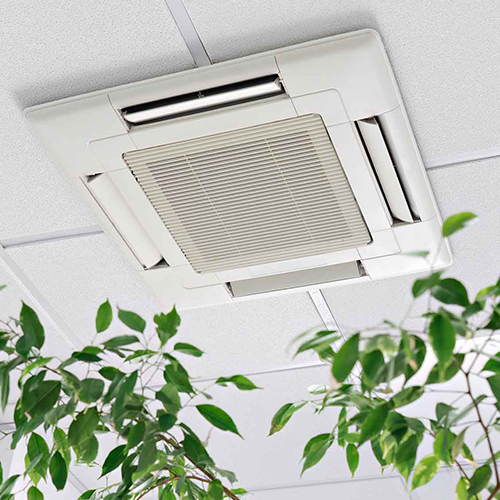 Indoor air quality (IAQ) plays a crucial role in creating a healthy and comfortable living environment. Poor IAQ can lead to health issues such as allergies, respiratory problems, and overall discomfort. Fortunately, there are several effective strategies you can implement to enhance the air quality in your home. Here are some practical tips for improving IAQ and ensuring a healthier home.
Indoor air quality (IAQ) plays a crucial role in creating a healthy and comfortable living environment. Poor IAQ can lead to health issues such as allergies, respiratory problems, and overall discomfort. Fortunately, there are several effective strategies you can implement to enhance the air quality in your home. Here are some practical tips for improving IAQ and ensuring a healthier home.
- Regularly Clean and Replace Air Filters
Air filters are essential for trapping dust, pollen, and other airborne particles. Over time, filters can become clogged and less effective. To maintain optimal air quality, regularly clean or replace your air filters according to the manufacturer’s recommendations. High-efficiency filters, such as HEPA filters, can capture smaller particles and improve overall air quality. - Maintain Proper Ventilation
Proper ventilation is key to ensuring that fresh air circulates throughout your home and that indoor pollutants are effectively removed. Open windows when weather permits to allow fresh air in and reduce indoor pollutant levels. Additionally, consider using an exhaust fan in areas like kitchens and bathrooms to expel excess moisture and odors. - Control Humidity Levels
Humidity levels can significantly impact indoor air quality. High humidity can promote mold growth and attract dust mites, while low humidity can lead to dry skin and respiratory irritation. Aim to maintain indoor humidity levels between 30-50%. Use a dehumidifier to reduce excess moisture or a humidifier to add moisture when necessary. Regularly monitor and adjust humidity levels to prevent related issues. - Keep Your Home Clean
Regular cleaning helps reduce the buildup of dust, allergens, and other pollutants. Vacuum carpets and upholstery frequently using a vacuum with a HEPA filter. Dust surfaces with a damp cloth to avoid dispersing dust into the air. Additionally, wash bedding, curtains, and other fabrics regularly to remove dust and allergens. - Use Air Purifiers
Air purifiers can help remove airborne contaminants that may not be captured by your HVAC system’s filters. Consider investing in a high-quality air purifier with a HEPA filter to address specific concerns such as allergies or asthma. Place air purifiers in frequently used rooms or areas with poor ventilation. - Regularly Inspect and Maintain Your HVAC System
Your HVAC system plays a significant role in maintaining indoor air quality. Schedule regular professional maintenance to ensure your system is functioning properly. A qualified technician can clean system components, inspect ductwork, and address any issues that could affect IAQ. Regular maintenance helps keep your system running efficiently and improves overall air quality. - Ensure Proper Insulation
Proper insulation helps prevent drafts and maintains consistent indoor temperatures, which can contribute to better air quality. Check for gaps or leaks around windows, doors, and other areas where air might escape. Improving insulation can also enhance the efficiency of your HVAC system, further supporting good IAQ. - Add Indoor Plants
Certain indoor plants can help improve air quality by absorbing pollutants and releasing oxygen. Plants such as spider plants, snake plants, and peace lilies are known for their air-purifying properties. Incorporate indoor plants into your home decor to add a touch of greenery while enhancing IAQ.
Final Thoughts
Improving indoor air quality is essential for creating a healthier and more comfortable living environment. By implementing these tips, you can enhance the air quality in your home and reduce the risk of health issues related to poor IAQ. For expert HVAC services and advice on maintaining optimal air quality, trust Infiniti HVAC.

